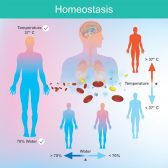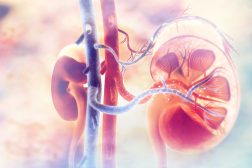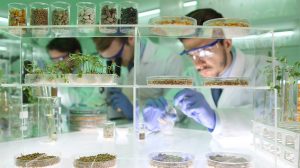Feedback control
The regulation of the activity of an enzyme by one of its products.
You will also like...

Principles of Hormonal Control Systems
Hormones are essential in the regulation of the activity of the various biological systems of the human body. The inefficiency of any of these hormonal control systems may lead to the improper functioning of the body. In this tutorial, get to know the different classes of hormones, metabolism, mechanism, and control of hormone secretions. ..

Physiological Homeostasis
Homeostasis is essential to maintain conditions within the tolerable limits. Otherwise, the body will fail to function properly. The body does this through feedback control mechanisms, e.g. blood sugar level regulation and temperature regulation. Read this tutorial to know more about the principles of negative feedback control employed by the body to sustain homeostasis...

Homeostasis of Organism Water Regulation
Osmoregulation is the regulation of water concentrations in the bloodstream, effectively controlling the amount of water available for cells to absorb. Take a look at this tutorial to know how the body regulates blood sugar levels and temperature...

Regulation of Biological Systems
Regulation of Biological Systems tutorials are focused on the modulation of biological systems from cell to population levels. The course starts with the principles of negative feedback control, and how it regulates blood sugar, water, and temperature in humans. It, then, culminates in the population regulation and ecosystem succession. Learn the various regulatory mechanisms that..

Regulation of Organic Metabolism, Growth and Energy Balance
The human body is capable of regulating growth and energy balance through various feedback mechanisms. Get to know the events of absorptive and post-absorptive states. This tutorial also describes the endocrine and neural control of compounds such as insulin and glucagon. It also deals with the regulation of growth, heat loss, and heat gain. ..

Human Reproduction
Humans are capable of only one mode of reproduction, i.e. sexual reproduction. Haploid sex cells (gametes) are produced so that at fertilization a diploid zygote forms. This tutorial is an in-depth study guide regarding male and female reproductive physiology...
